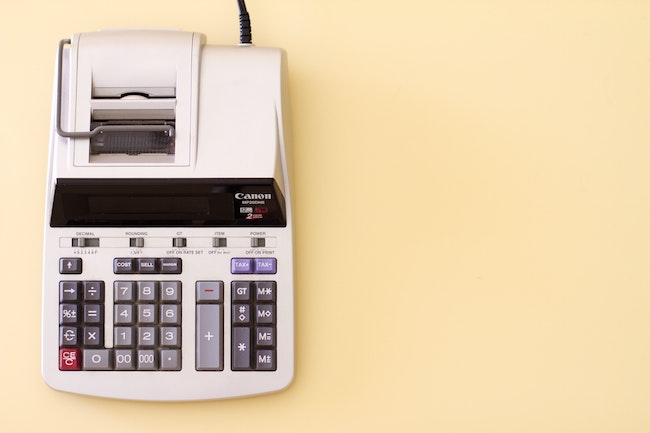If you own a business or are just starting one, knowing some accounting basics is crucial. You don’t need to know the nitty-gritty details of everything related to business accounting, but you do need to have some basic knowledge on the subject. This process can seem daunting, but accounting is simply a part of your business that will help you keep records and make decisions for the future. This blog will outline some of the basic accounting terms and concepts to give you a general idea of the process.
Related: How to File Company Accounts: Everything You Need to Know
Why Is Company Accounting Important?
At the most basic level, accounting is the recording of the financial transactions of a business. It is also referred to as bookkeeping. It’s a language businesses use to analyse financial statements and the status of an organisation to fulfil compliance requirements of the law.
Businesses need to provide an accurate company accounting analysis because it is your legal responsibility as a Company Director to report all financial activity within your business. Different taxation laws apply to different types of businesses, so it’s also important to know which type of accounts you need to keep records of to be compliant with the laws of your country.
While you don’t need to become an accounting expert overnight, having a greater understanding of accounting terminology and practices will help you track your income and be a better business owner. You’ll be more equipped to make financial decisions for your business and provide investors with quantitative information about the overall success of your company.
Basic Accounting Terms
As mentioned above, accounting is its own business language. Therefore, you’ll need to understand the basic terms of company accounting if you’re just starting out. Accounting practices happen within the Fiscal Year, which can line up with the calendar year, or not, depending on when the company first started its business.
Debits and Credits
Debits refer to a company’s assets — anything tangible or intangible that the company owns — and indicate where money in a business comes from. Credits are a company’s liabilities — expenses and loans or taxes owed — indicating where the money goes. Debits and credits must always be equal when recording the financial transactions of a business. For example, if you purchase supplies for your product for £25,000, you would post that as a debit because you own those supplies. You would then credit your cash account for £25,000 because that money was deducted from your account, balancing out the transactions.
Expenses, Profit and Revenue
Expenses are often referred to as “the cost of doing business”, meaning the money you spend to try and generate revenue. These can include rent, utilities, salaries, raw materials and any other operating expenses necessary to fulfil your business needs. Revenue is everything you make on your products and services before expenses are paid in full. Your company’s net profit is the total you earn after all expenses have been deducted from your revenue.
Company Accounting Process — Where Do I Begin?
To begin financial reporting and accounting for your business, there are some steps you need to take to ensure you’re on the path to success.
1. Open a business bank account
You want to make sure your business transactions and expenses are separate from your personal accounts. This makes it easier to keep records of what you spend and earn specifically for your business and makes the bookkeeping process much smoother. We recommend setting up both checking and savings company accounts and setting aside sufficient funds for unexpected expenses and taxes. If you’re not a resident of the UK, you can still set up a UK business bank account.
2. Itemise all expenses
After your bank account is registered under your business name, you need to keep records of everything by department. Save every receipt or transaction you make related to marketing expenses (including outsourcing web development or social media), business travel (including vehicle expenses like petrol and mileage), home office expenses (like wifi and phone bills), and meals and entertainment. These are all things that can be deducted from your company’s taxes.
3. Understand tax obligations for your type of business
This can be difficult, especially if you are setting up an account in a foreign country. Tax laws and regulations vary depending on the country in which your business is registered, and you need to stay up to date with all of the accounting procedures within that country.
4. Begin bookkeeping
Set aside some time weekly or monthly to ensure all of your records are organised and in one place. It’s much more manageable to dedicate time to this regularly, even if it seems tedious. If anything is missing or you need to get another record or receipt, you don’t have to chase it down at the end of the year when you’re filing your taxes (and it could prove to be much more difficult down the road). Get into the habit of a regular bookkeeping practice to keep track of your expenses and your business’s overall performance.
Next Steps to File Your Company Accounts
Now that you have basic company accounting knowledge, you’re ready to start bookkeeping for your business. Accounting is a necessary skill as a business owner, and although it may seem tedious, it will allow you to keep an eye on your business’s financial success and help inform future decisions.
All of this information can be overwhelming, especially given the legal implications if something isn’t correctly filed or reported. If you have any questions about tax procedures or company accounting, our expert accountants at Mint Formations offer comprehensive accountancy services. We are dedicated to your success and will help you in any capacity you need, from answering questions to full accounting services.
Book a free consultation and let our experts at Mint Formations manage your company accounting needs and guide you through the process: 020 7112 8684

